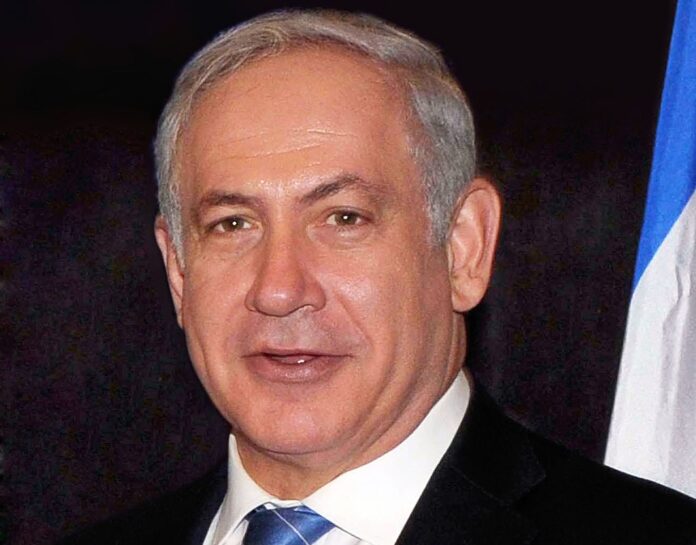Amid escalating tensions, Israel has set a deadline for Hamas to agree to a ceasefire, with significant global protests and diplomatic movements unfolding
In a pivotal development in the Israel-Hamas conflict, Israel has issued a stark ultimatum to Hamas: agree to a ceasefire within one week or face a military offensive in Rafah, Gaza’s southernmost city. This announcement comes amid a backdrop of significant international reaction, including widespread protests and diplomatic efforts aimed at averting further escalation. The situation highlights the intricate balance of military strategy, international diplomacy, and public sentiment that frames the ongoing conflict.
The deadline is part of a broader context involving geopolitical maneuvers and humanitarian concerns, as various global actors, including the United States, Egypt, and Qatar, attempt to mediate and stabilize the volatile situation. The urgency of the ultimatum coincides with reports of escalating protests around the world, where thousands have been arrested in connection with demonstrations on university campuses. These protests reflect a growing global discontent with the continuing violence and the humanitarian impact on the Gaza population.
Embed from Getty ImagesFurthermore, developments such as Turkey’s halt to trade with Israel and statements from global health and humanitarian organizations underscore the deepening concern for the civilian cost of continued conflict. The World Health Organization has explicitly warned of the dire consequences of a military operation in Rafah, projecting severe impacts on an already strained health system and potentially massive casualties.
Wion
Wion article highlights: Israel has set a one-week deadline for Hamas to agree to a ceasefire, threatening an offensive in Rafah if the deadline is not met. The ultimatum is part of a proposed deal brokered by international mediators from the US, Egypt, and Qatar, which includes the release of hostages in exchange for a temporary halt in the fighting. This development is reported amidst a surge in global protests, particularly on university campuses worldwide, demonstrating against the ongoing conflict and expressing solidarity with the Palestinian cause.
The report also touches on the broader implications of the conflict, noting the arrest of over 2,000 individuals involved in pro-Palestinian protests across the United States. These demonstrations have not only spread across America but also to other countries, significantly impacting global public opinion regarding the war in Gaza.
Additionally, the Indian Ministry of External Affairs has issued travel advisories for its citizens travelling to Iran and Israel, urging them to stay vigilant and maintain communication with Indian embassies. This advisory reflects the growing regional instability and the potential dangers to international travellers.
The situation in Rafah remains tense, with potential humanitarian impacts highlighted by various organizations, including the World Health Organization, which has flagged the severe repercussions on Gaza’s healthcare system should an offensive take place. The global response, characterized by diplomatic efforts and public protests, underscores the complex dynamics at play in this long-standing conflict.
Hindustan Times
Hindustan Times article highlights: The potential Israeli military incursion into Rafah could result in a significant humanitarian crisis, warned by the World Health Organization. The operation, as stated by Israeli Prime Minister Benjamin Netanyahu, aims to target Hamas fighters but poses a high risk of a “bloodbath” given the dense civilian population in the area.
The report elaborates on the dire warnings issued by the WHO, which has described the potential for catastrophic health impacts and a surge in casualties should the offensive proceed. The health facilities in Gaza, already compromised by ongoing conflicts, are ill-prepared for the aftermath of a full-scale military operation.
In response to the escalating situation, WHO has outlined contingency plans, albeit with a grim outlook on their sufficiency in handling the expected increase in medical needs. This reflects a broader concern among international health authorities about the capacity of Gaza’s health system to withstand further strain.
The article also addresses the broader geopolitical implications, noting Turkey’s suspension of trade with Israel in response to the ongoing violence and the lack of a ceasefire. This development indicates significant regional repercussions that could influence international relations and economic dynamics in the Middle East.
First Post
First Post article highlights: The looming threat of an Israeli operation in Rafah has drawn sharp criticism and concern from various United Nations agencies, warning of the potential for massive civilian casualties. The operation is expected to impact hundreds of thousands of Palestinians currently sheltered in makeshift accommodations in Rafah, where the conditions are already dire due to previous conflicts.
The report details the UN’s concerns about the impact on humanitarian operations within Gaza, particularly in Rafah, which serves as a critical hub for aid distribution. The potential closure of the Rafah crossing, a vital passage for medical and food supplies, poses a significant risk to the well-being of the Gazan population.
The coverage underscores the precarious situation faced by civilians in Rafah and the broader Gaza Strip, emphasizing the urgent need for a ceasefire and sustained humanitarian efforts to prevent further tragedy. The international community’s response, as articulated through UN channels, calls for immediate action to safeguard civilians and ensure the continued delivery of critical aid.
Business Standard
Business Standard article highlights: The potential Israeli offensive in Rafah has prompted discussions between Israel and the United States, focusing on the evacuation of Palestinian civilians and the implications for civilian safety. The Biden administration has expressed concern over the humanitarian impact of the operation, emphasizing the need for a credible plan to protect civilians.
The report provides insight into the strategic preparations undertaken by Israel, including briefings to U.S. officials on evacuation plans. However, the efficacy and completeness of these plans remain a point of contention, with U.S. officials urging continued dialogue to ensure the protection of civilian lives.
This coverage also reflects on the broader international reaction to the proposed offensive, including diplomatic efforts to negotiate a ceasefire and manage the humanitarian fallout. The involvement of high-level officials, including the CIA director’s visit to Egypt, underscores the intense diplomatic activity aimed at averting a deepening of the conflict.
